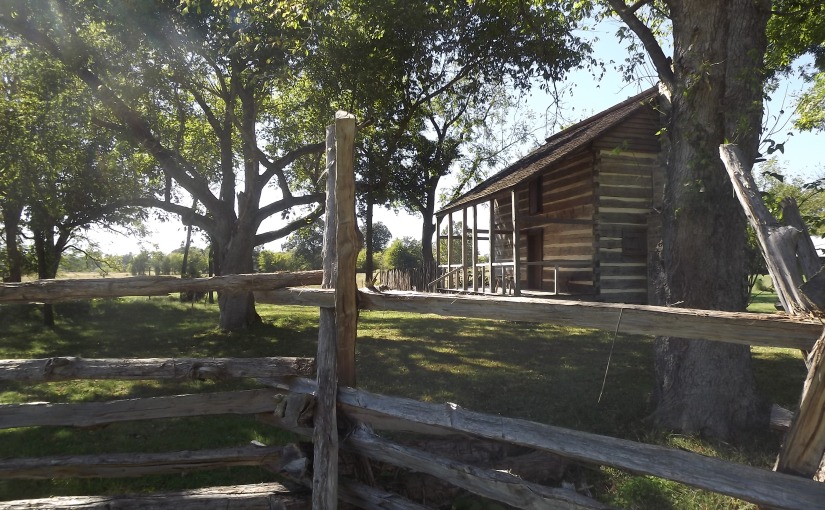On Monday, a writer friend and I decided to take a short road trip to Oil Trough, Arkansas. You may ask why we would do such a thing… TWO REASONS
People can go stir crazy sitting around their homes for weeks, even if they have lots of things to keep them busy. I am writing the fifth volume of my Shiloh Saga, editing volume one so I can have an e-book published, taking care of two dogs–Shiloh and Perkins, reading lots of historical fiction, and watching old movies on TV. Once in a while, I clean some portion of my house, but that’s not high on my list of priorities. I also attend on-line church, message my friends when I think about it, and run errands in my new Jeep (but that’s a story for another time). I just wanted to get out of the house. So Oil Trough seemed like a wonderful choice for a day trip.
Reason two is probably more pertinent to this blog. Oil Trough will play a significant role in the crisis point of the last volume of this saga. I named the last book, ‘Til Shiloh Come, a phrase from the scripture I used as the pivotal theme of the books. You can check it out at Genesis 49:10. I can’t tell you what happens in the story, but I will tell you a little bit about the beautiful little town of Oil Trough and its part in Arkansas history.
Oil Trough is a very old settlement in the state. The original name of the community was Pleasant Island (I like that name a lot). After fifteen years, plus or minus three, the name was changed to Oil Trough. This area was a haven for animals in the early days, and bears thrived there. This brought hunters who killed the bears by the scores and rendered their fat for the oil used in a variety of products, like cosmetics, cooking oil, hair dressing and tanning oil. The settlers used hollowed-out trees (hence Oil Trough) to store the treasure, and the very large “troughs”, some up to five or six feet in diameter, were floated down river as far as New Orleans, where the valuable oil was sold. Oil was not the only treasure found in this Independence County community. Settlers were drawn to the area by soil so fertile it could grow corn(maize) at the rate of forty to fifty bushels an acre and “pumpkins too large for a man to heft.” In 1864, a skirmish between the Union and Confederate forces took place on the banks of the White River at Oil Trough. This incident will be a pivotal scene in ‘Til Shiloh Come.
Today, Oil Trough is a rural community of about 260 people. Agriculture remains the prominent occupation of most of its residents. The beauty of “Pleasant Island” is evident as the river bends here and runs toward the Ozark foothills. The current runs swiftly here, and we saw an otter playing in the blue water. Our trip showed us why the first of the inhabitants of the area thought island was an appropriate name for this beautiful place. I enjoyed this day trip exceedingly. My friend and I completed the day with a picnic lunch in my car with wonderful food from the Razorback Drive-In at Bald Knob. We didn’t think about a virus or a lock-down the entire day.
Arkansas is an awesome place. Maybe you can get out and see some of it while the stores are all closed. The whole day was a bargain–a little bit of gasoline and the cost of strawberry short cake!

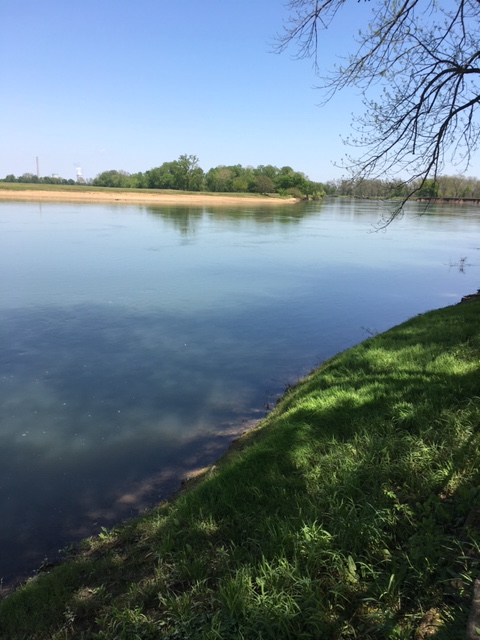
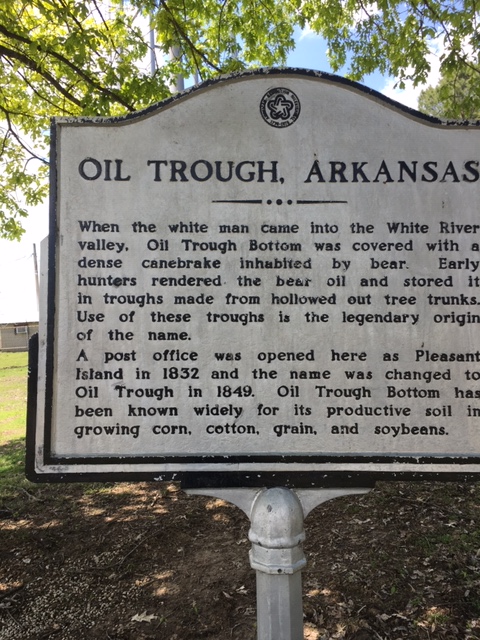
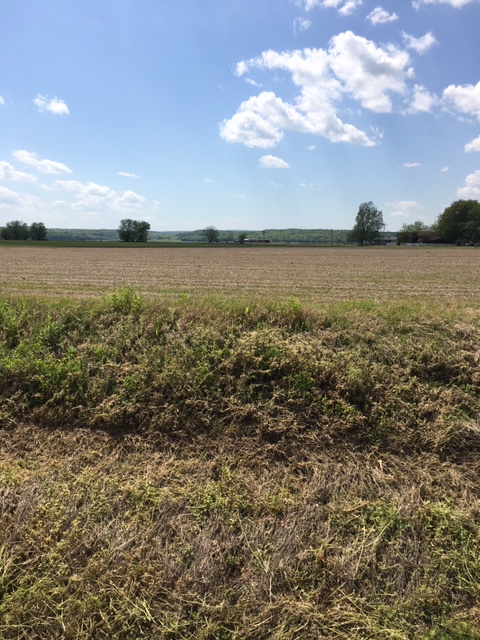
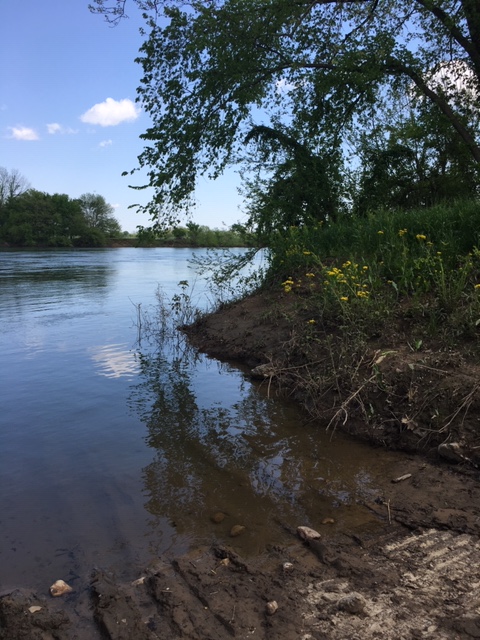
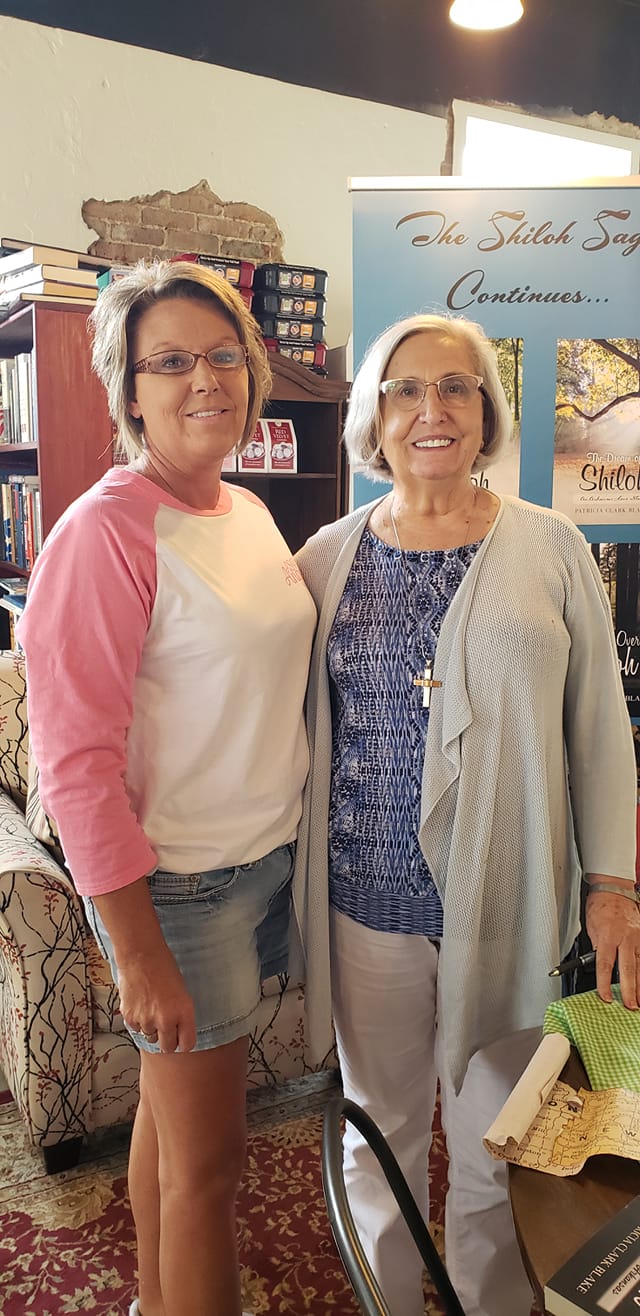
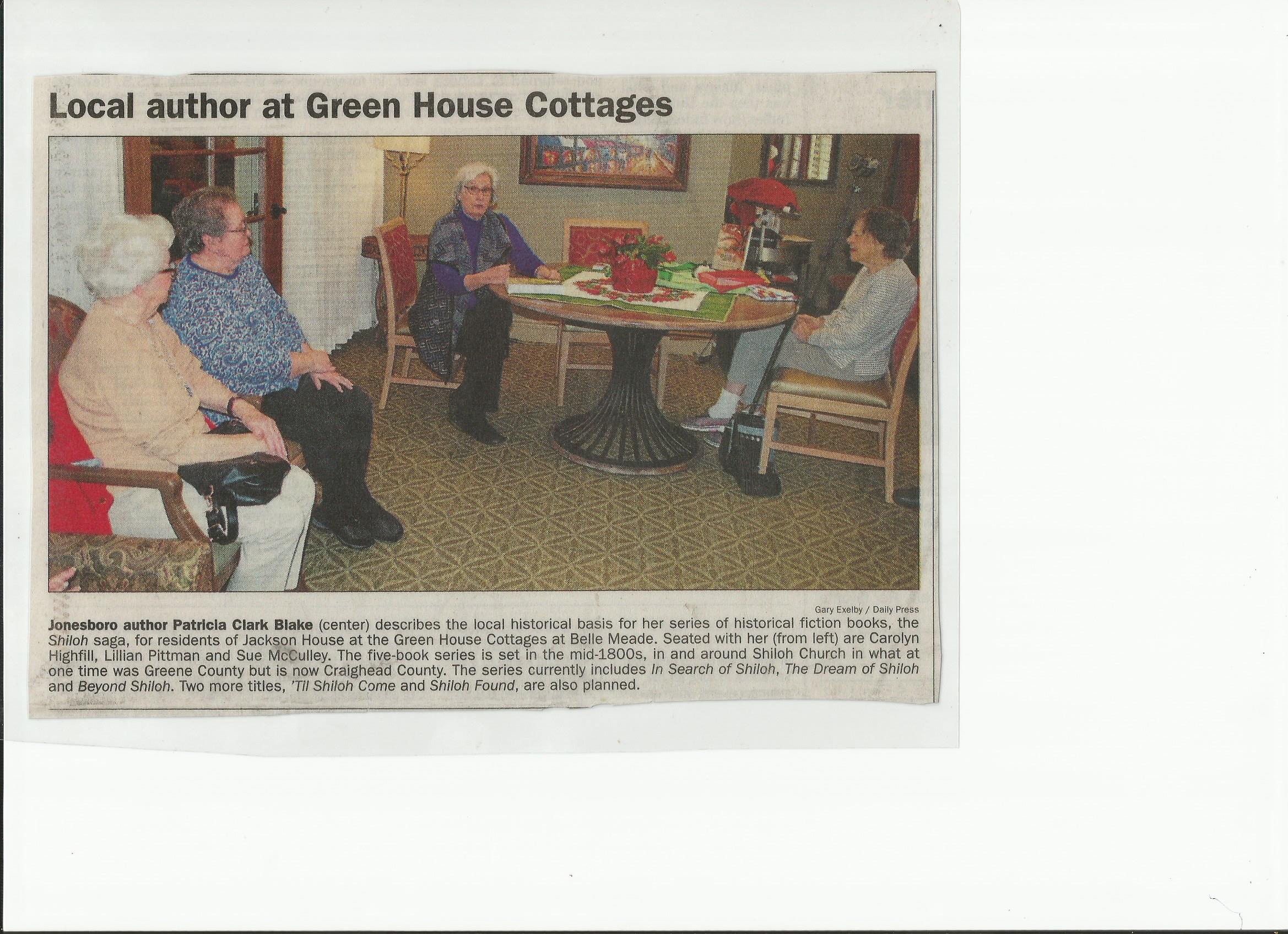



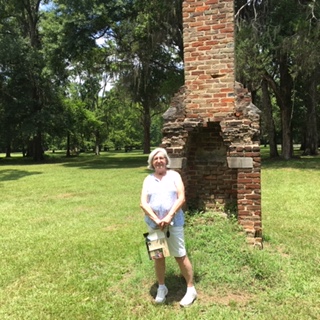
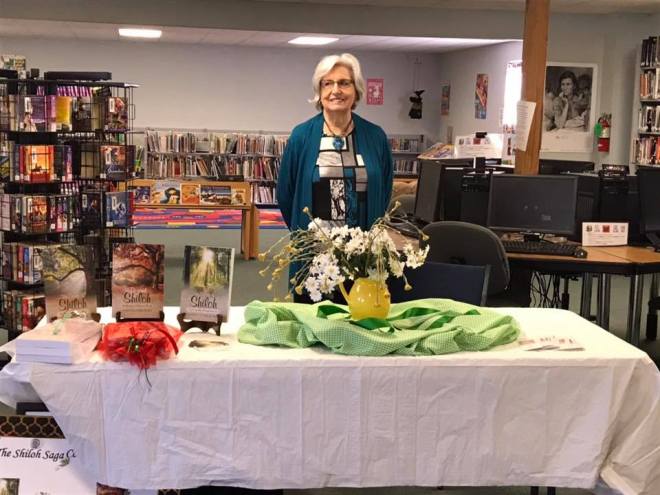
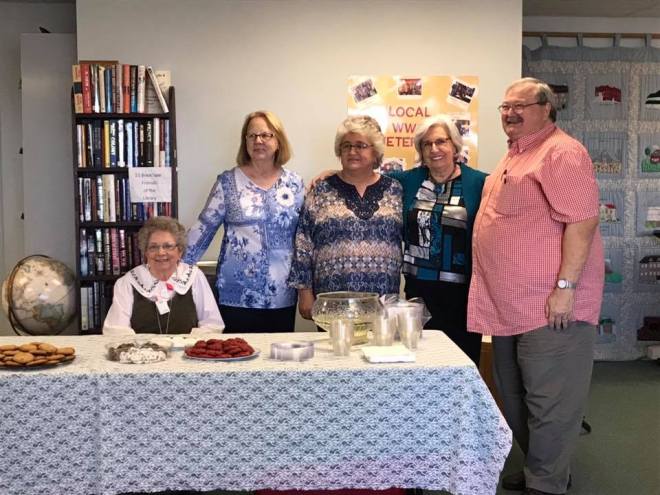
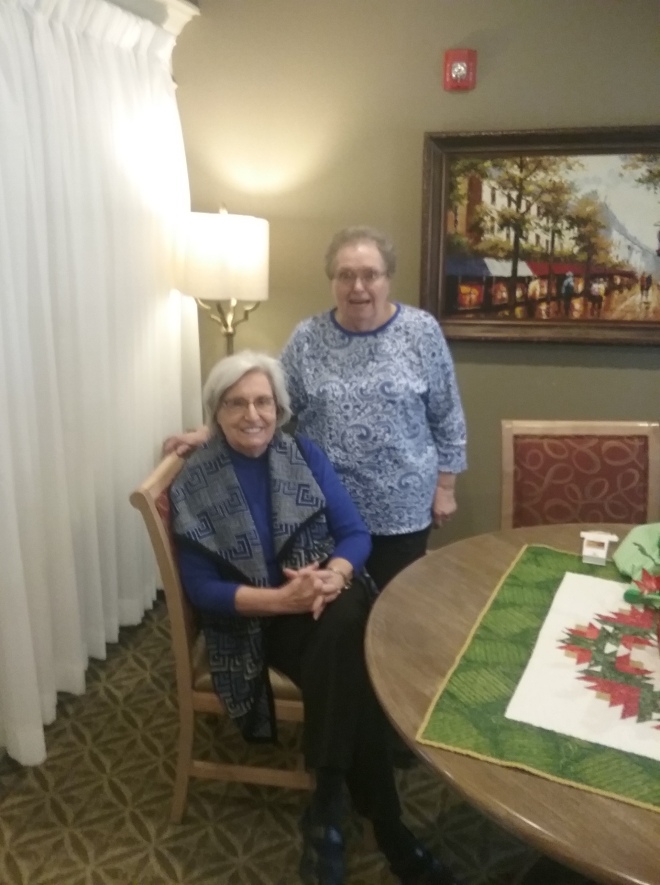




![PBC-Beyond Shiloh[24672].png](https://patriciablakeblog.files.wordpress.com/2018/08/pbc-beyond-shiloh24672.png)
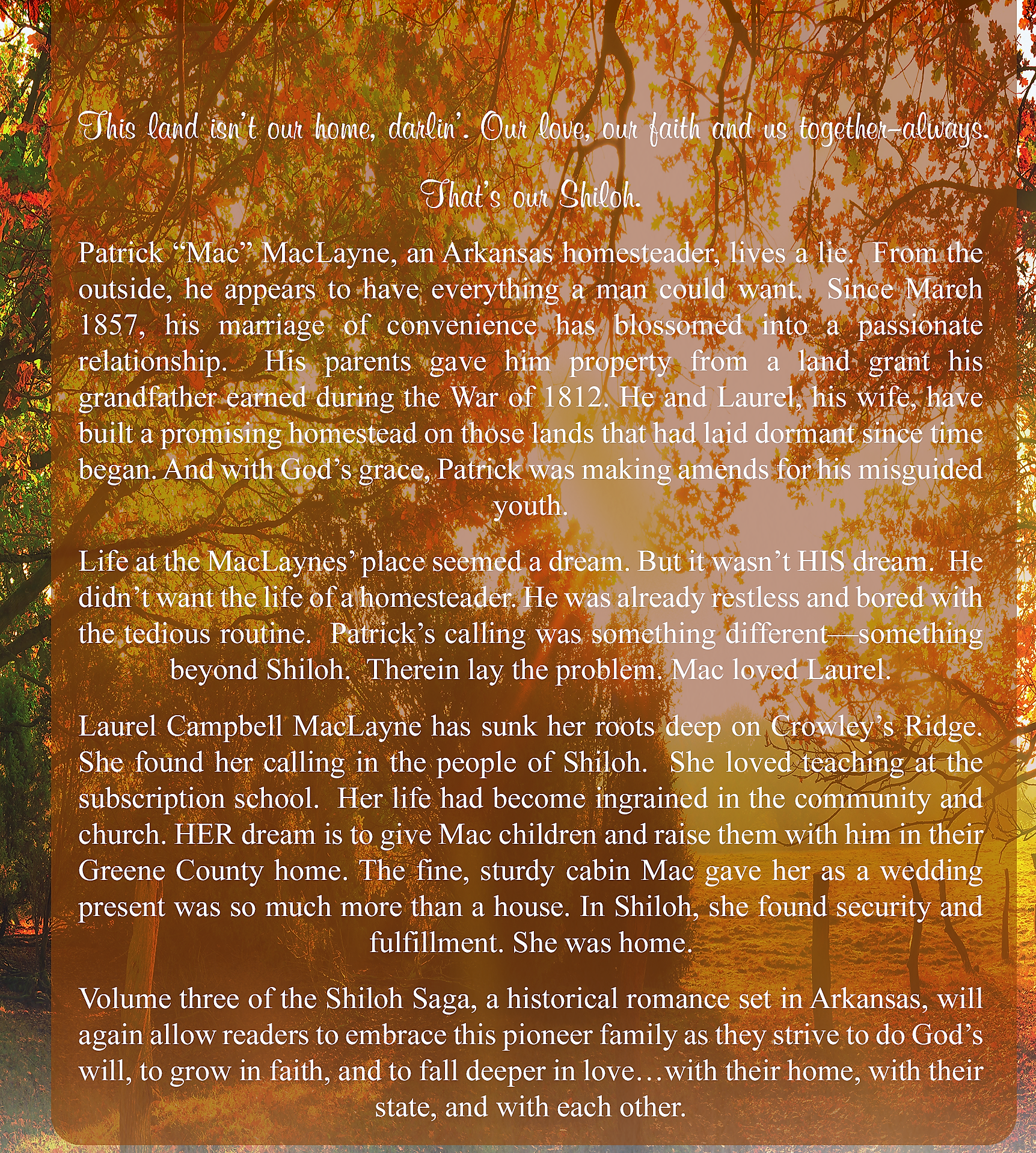
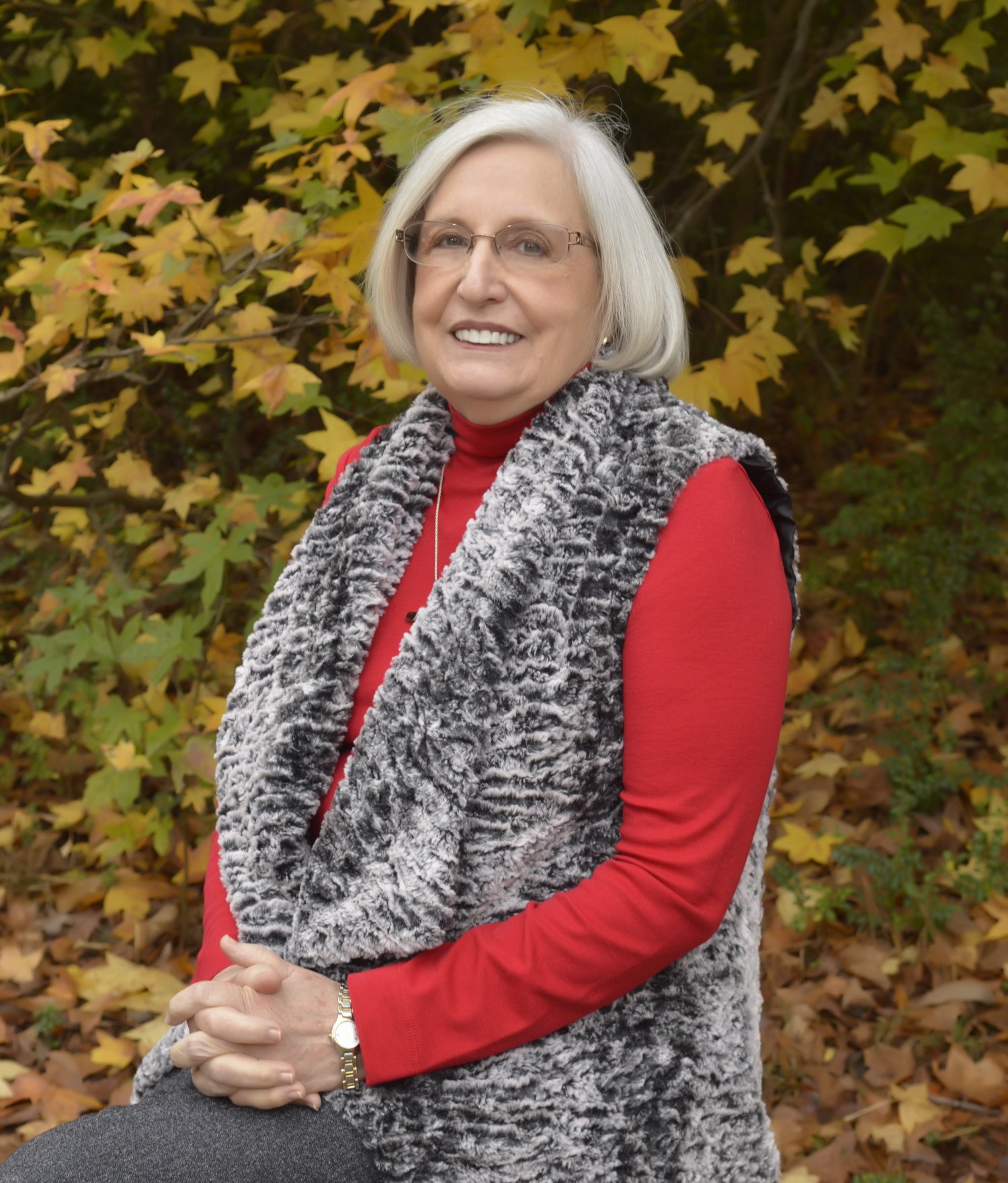 My New Author Picture
My New Author Picture
 Sandra Robbins
Sandra Robbins